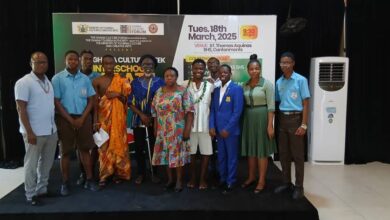UTAG calls off strike
The decision to call off the action came after authorisation was given by the government to the Vice Chancellors, Ghana (VCG) to pay university lecturers the difference in book and research allowances received by lecturers of other analogous educational institutions and those received by university lecturers, the Vice President of UTAG, Mr Alexander Dakubo Kakraba.
On August 1, 2013, UTAG called a strike to demand the payment of market premium arrears due them from January 2012.
The second issue was for equity in the payment of book and research allowances to university lecturers and others in analogous institutions who were receiving 114 per cent more than UTAG members.
The government released money to pay arrears, but UTAG continued with the action, maintaining that although their book and research allowances were subject to review within the framework of the negotiations on category two and three allowances that were yet to start, all they wanted was for their employers to instil equity in the amount received by them and others.
Subsequent initiatives for the strike to be called off included a letter from UTAG to the VCG for a commitment by them and the government on resolving the issue.
The VCG wrote back to UTAG, and after a national executive meeting on September 3, 2013, they decided to continue with the strike because the response by their employers to commit was not explicit enough.
Mr Kakraba said the decision meant the UTAG members would now begin to enjoy what had been due them all along.
For the future, he caution the Deputy Minister of Education in-charge of tertiary education, Mr Okudzeto Ablakwa, to refrain from peddling the idea that the book and research allowance was going to be scrapped for a research fund.
He said the Deputy Minister had to rather sit with the players in the sector and discuss the idea before going about with it.
He was of the view that the idea was ‘sucidal’ for university education in the country, as the structure of the country’s universities would not favourably sync with the idea of such a fund.
He added that if that was going to be the situation, conditions for lecturing at the university had to be so near perfect that lecturers would have the opportunity and time to write proposals to enable them access the research fund.
Mr Kakraba said issues of promotion and career progression were critical in the consideration of such a fund, because research was critical to the work of lecturers and the book and research allowance enabled that.
With the research fund, lecturers who could no access it would be disadvantaged when it came to promotions.
Mr Kakraba, therefore asked policy makers to get to the table and discuss the idea.



